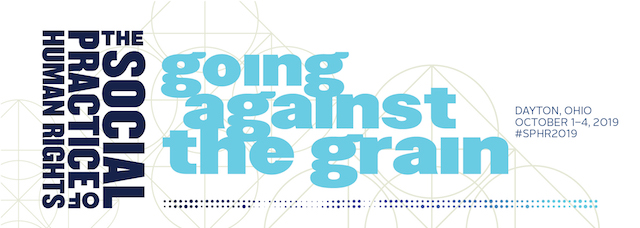Location
Defending Human Rights
Start Date
10-4-2019 10:30 AM
End Date
10-4-2019 12:00 PM
Keywords
Academic Freedom, China, Human Rights, Higher Education, Censorship, Institutional Autonomy, Scholars at Risk
Abstract
China’s government has made significant investments to develop universities that already compete with the world’s best. Their progress has captured global attention over the years, with universities around the world forging partnerships with institutions in the People’s Republic of China (PRC), and scholars and students around the world flocking to study, teach, and research in the country. But while China continues to stoke its ambitions for developing more world-class universities, respect for academic freedom and other human rights essential to quality higher education lags behind, leaving scholars and students at risk, and the country’s goals in balance.
With the recent release of Scholars at Risk’s (SAR) Obstacles to Excellence: Academic Freedom and China’s Quest for World-Class Universities, the critical relationship between human rights and higher education erodes as China continues to rise in global higher education rankings systems. In mainland China, state and university authorities have employed a range of tactics to intimidate, silence, and punish academics and students. Scholars at students in and from the Tibet, Inner Mongolia, and Xinjiang Uyghur Autonomous Regions report intensive levels of surveillance, censorship, and the threat of imprisonment under the PRC’s increasingly strict security policies. In the Hong Kong and Macau Special Administrative Regions, university communities that for years enjoyed relatively significant academic freedom are confronted with a shrinking space for ideas. In the global arena, foreign higher education institutions continue to raise concerns over their autonomy and independence from political influence, as Chinese scholars and students abroad suffer from restrictions on and retaliation for academic conduct and content.
Based on interviews with Chinese and international sources familiar with Chinese higher education; data from the SAR’s Academic Freedom Monitoring Project; legislative and regulatory texts; statements by government officials; and reporting and research by human rights organizations, academia, and the press, Obstacles to Excellence seeks to raise awareness of academic freedom and autonomy-related pressures as they relate to basic human rights and offers recommendations for governments, higher education communities, and civil society in China and around the world.
Author/Speaker Biographical Statement(s)
Dr. Chelsea Blackburn Cohen is Senior Program Officer, North America, for the Scholars at Risk Network in New York. In this role she is responsible for research and services related to hosting threatened scholars, participation in advocacy activities, and workshops and events relating to the promotion of academic freedom and core higher education values. She has a PhD in Educational Leadership and Policy Analysis from the University of Wisconsin-Madison.
Included in
Educational Assessment, Evaluation, and Research Commons, Higher Education Commons, Higher Education Administration Commons, International and Comparative Education Commons, Politics and Social Change Commons
Obstacles to Excellence: Academic Freedom and China's Quest for World-Class Universities
Defending Human Rights
China’s government has made significant investments to develop universities that already compete with the world’s best. Their progress has captured global attention over the years, with universities around the world forging partnerships with institutions in the People’s Republic of China (PRC), and scholars and students around the world flocking to study, teach, and research in the country. But while China continues to stoke its ambitions for developing more world-class universities, respect for academic freedom and other human rights essential to quality higher education lags behind, leaving scholars and students at risk, and the country’s goals in balance.
With the recent release of Scholars at Risk’s (SAR) Obstacles to Excellence: Academic Freedom and China’s Quest for World-Class Universities, the critical relationship between human rights and higher education erodes as China continues to rise in global higher education rankings systems. In mainland China, state and university authorities have employed a range of tactics to intimidate, silence, and punish academics and students. Scholars at students in and from the Tibet, Inner Mongolia, and Xinjiang Uyghur Autonomous Regions report intensive levels of surveillance, censorship, and the threat of imprisonment under the PRC’s increasingly strict security policies. In the Hong Kong and Macau Special Administrative Regions, university communities that for years enjoyed relatively significant academic freedom are confronted with a shrinking space for ideas. In the global arena, foreign higher education institutions continue to raise concerns over their autonomy and independence from political influence, as Chinese scholars and students abroad suffer from restrictions on and retaliation for academic conduct and content.
Based on interviews with Chinese and international sources familiar with Chinese higher education; data from the SAR’s Academic Freedom Monitoring Project; legislative and regulatory texts; statements by government officials; and reporting and research by human rights organizations, academia, and the press, Obstacles to Excellence seeks to raise awareness of academic freedom and autonomy-related pressures as they relate to basic human rights and offers recommendations for governments, higher education communities, and civil society in China and around the world.



